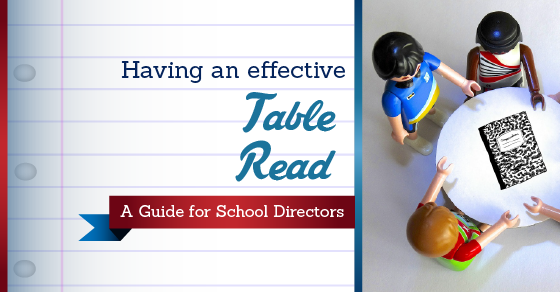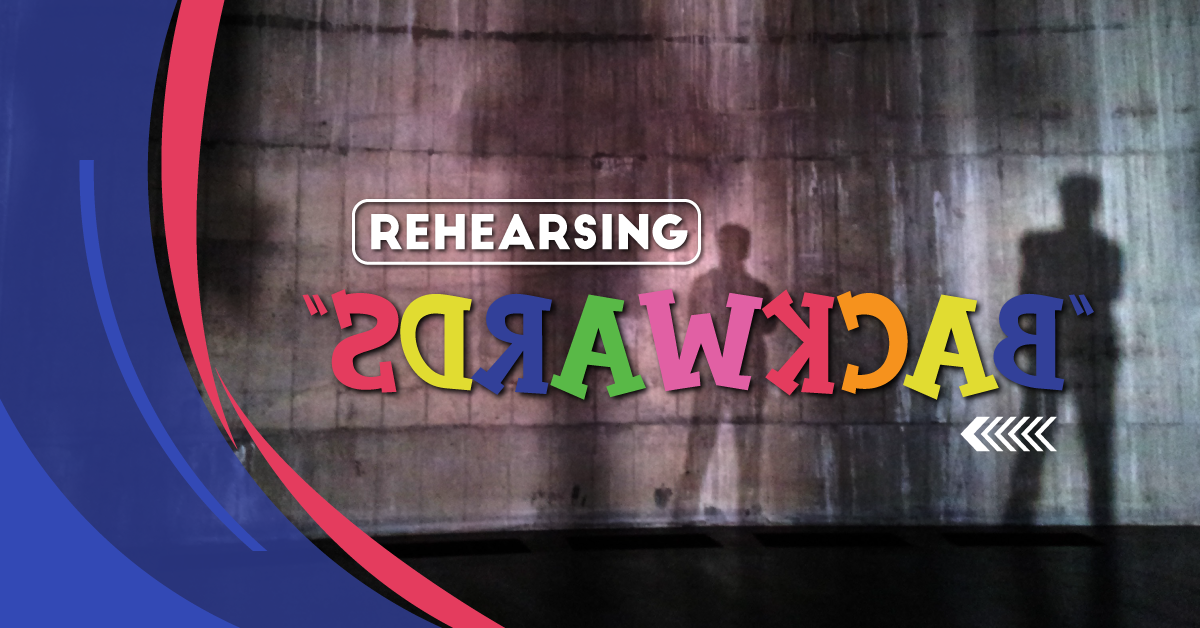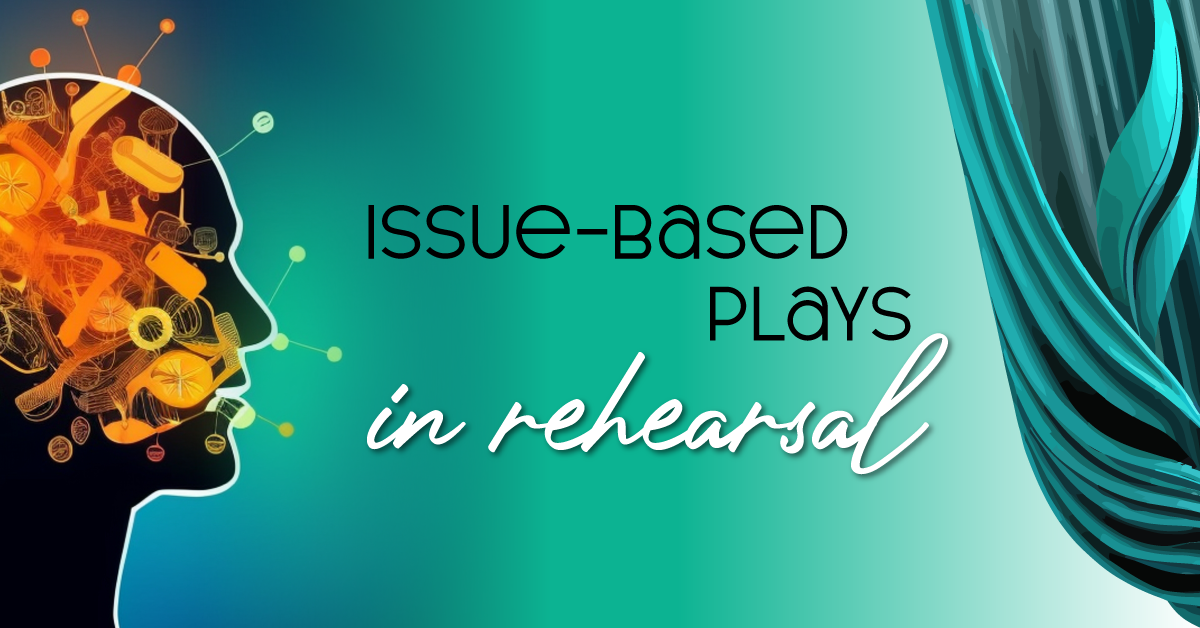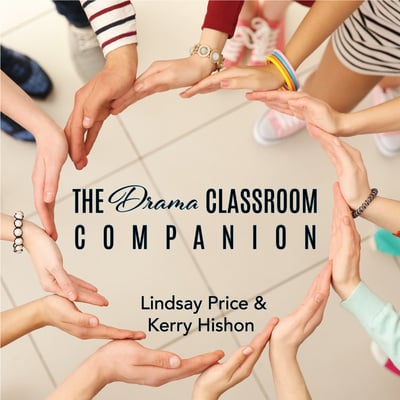Agatha Rex by Lindsay Price is a bold high school take on Antigone - packed with heart, conflict, and a powerhouse ensemble. One girl. One stand. One huge risk. *NEW COMPETITION VERSION AVAILABLE!*
Having an Effective Table Read: A Guide for Directors
A table read is a common first rehearsal activity. The director, actors, and stage manager sit around a large table and read through the script. Oftentimes other department heads are there (set design, costume design, props, etc.). Sometimes the department heads will give a design presentation to the cast.
Lots of people do table reads because… well, that’s what one does at the first rehearsal. In this post I’m going to dive in and explain why we do them. And, more importantly, how to have an effective table read to set your production up for success.
The reason for a table read depends on your role in the show.
Directors
Table reads are a great way to hear how the voices are going to blend together. It’s usually the director’s first opportunity to have the whole cast together at the same time.
They’re also the director’s first chance to hear the show out loud from beginning to end. The director probably heard a few scenes during auditions, but never the whole play. Directors spend so much time poring over the script, silently reading to themselves. And it’s inspiring to actually hear the show out loud. It’s a reminder that plays are living things, not just words on a page.
A table read is when the director starts building the community that is going to put on the show. It’s a message to everyone that the director is the leader, but we’re all part of the same team with the same goal.
Lastly, the table read is an opportunity to discover tricky spots. Are some actors going to need more help than others? Are there technical issues that you didn’t consider when you were reading the play?
Actors
I love starting rehearsals with a table read because I’m a nervous actor. I always come to the first rehearsal anxious about the process to come. Am I good enough for this role? For this company? A table read is a very low pressure reassuring process to calm actors’ nerves and to get them accustomed to the fact that they’re there, the role is theirs, they were chosen for a reason, and they’re going to be putting on a show.
The table read is an opportunity to hear the story as a whole and to understand our character’s role in the story. Actors can be pretty self-centered when preparing for a show. They have tunnel vision focus on their role, on their character’s objectives and tactics.That’s perfectly understandable. It’s what the actor is required to do.
The table read is a chance for actors to hear from the other characters in the show, to get a sense of what’s happening outside of our own goals and objectives, and to see the show as a whole.
Lastly, it’s a wake up call that we are here, we are putting on a show, we are a team and we all have to contribute. It’s time to get to work.
Stage Managers
The stage manager’s job begins well in advance of rehearsals and they should be up and running by the time the first rehearsal rolls around. I don’t know how it works in other countries but in Canada, professional theatres must hire stage managers for at least a week before rehearsals. It’s called “prep week” and it’s the stage managers chance to focus solely on preparing for the show without the distractions of rehearsals.
At the high school level I know this is not always possible. Sometimes you get your play sorted out on a Friday and start rehearsals on a Monday!
During the table read, stage managers often read the stage directions aloud. This helps the team to visualize the physical action and to get a better understanding of how the show will come together physically.
Stage managers also use the table read to get a rough timing of the show. The final running time of the show will change quite a bit from the running time of the table read but an experienced stage manager will be able to come up with a pretty accurate estimate.
The table read is an opportunity for the stage manager to clarify the tricky technical aspects of the show. Are there going to be tight costume changes or scenery changes? Is there likely to be a tight set of cues that weren’t apparent before?
Making the Table Read Effective – Tips for Directors
Here are some tips to make the best possible use of the table read.
Describe your vision for the show. Some of your actors will be nervous. As a director, step up and go first. Describe your vision for the show. Talk about your influences for the direction of this show, why you chose the script, and why you chose this set of actors.
Don’t act. Tell your actors to not “act.” Ask them to just read the script. Focus on clarity. Focus on reading the words on the page. Focus on hearing the story clearly. Coach your cast to slow down if they’re going to fast. Assure your cast that they have already won the roles. They showed you something in the audition that made you choose them. This is not an audition, this isn’t a show, it’s a reading. This is the team on the starting line. There will be lots of time for acting later.
Have word definitions / pronunciations ready. If you’re working with student actors, it’s likely that they will have not done much homework. Identify unfamiliar words and look up the correct pronunciations and definitions. The actors should be doing this for themselves, but they probably won’t. If you’re ready with the answers (you should know the definitions and pronunciations anyway) then you’ll avoid wasting everyone else’s time at the first rehearsal.
Have fun. But be clear that this is work time. You are building a team. Set a fun relaxed environment for the first meeting. But when it comes to the actual table read, be clear that it’s time to work. Stifle side-chatter during the reading and demand focus on the task at hand.
Related Articles
The Drama Classroom Companion
by Lindsay Price & Kerry Hishon
The Drama Classroom Companion is filled with articles and exercises to build the skills needed for theatrical performance as well as real world skills like creative thinking, critical thinking, collaboration, and communication.
The Rehearsal Companion
by Kerry Hishon
You’ve chosen the play, paid the royalties, done the script analysis, held your auditions, and cast the show. Tomorrow is the first rehearsal. Are you ready? Really ready? The Rehearsal Companion can help!





